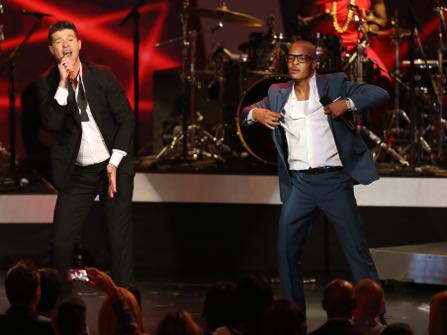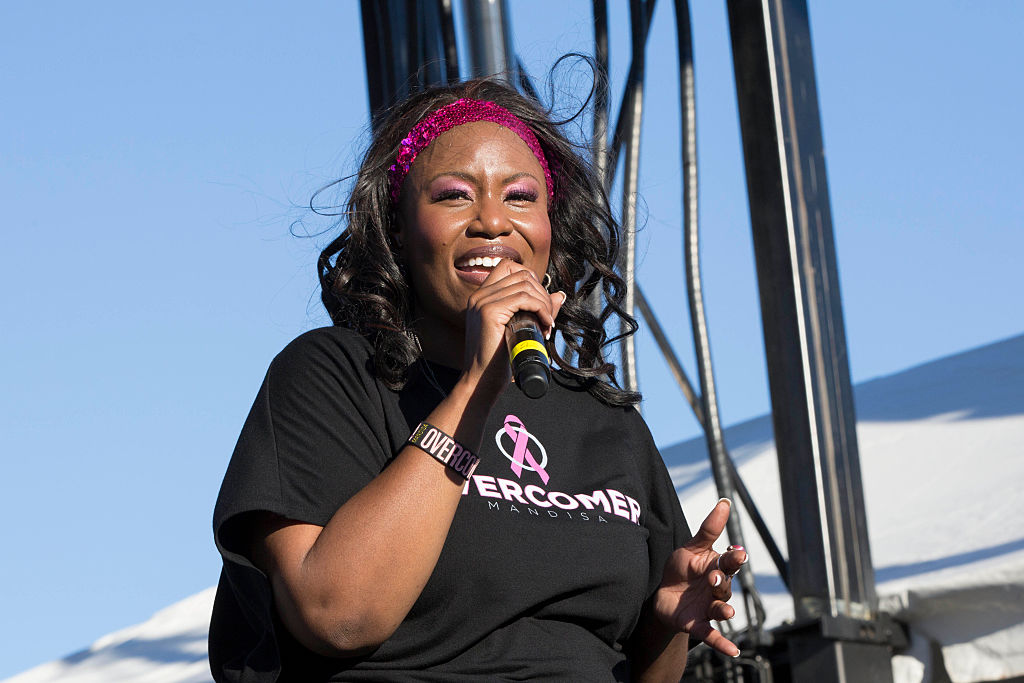
One week after attorneys for Robin Thicke and Pharrell Williams appealed the “Blurred Lines” copyright infringement verdict, 212 musicians have stepped forward to support the pair’s legal attempt to overturn the judgment, according The Hollywood Reporter.
On Tuesday, an amicus brief was filed with the 9th Circuit Court of Appeals in support of Thicke, Williams and T.I., stating that work evoking another era or sound should not be viewed as copyright infringement.
R. Kelly, Hall & Oates’ John Oates, Jennifer Hudson and Hans Zimmer were among the musicians lending their names to the brief.
“Such a result, if allowed to stand, is very dangerous to the music community, is certain to stifle future creativity, and ultimately does a disservice to past songwriters as well,” the brief stated. “One can only imagine what our music would have sounded like if David Bowie would have been afraid to draw from Shirley Bassie, or if the Beatles would have been afraid to draw from Chuck Berry, or if Elton John would have been afraid to draw from the Beatles, or if Elvis Presley would have been afraid to draw from his many influences.”
In March of last year, a jury found that Thicke and Williams had copied the Marvin Gaye hit “Got to Give It Up” with their 2013 hit “Blurred Lines.” The late soul legend’s family was awarded more than $7 million, though the verdict was later lowered to $5.3, and a 50 percent interest in ongoing royalties from the song.
Authored by Ed McPherson, the amicus brief argued that the verdict will only discourage musicians from creating music that could be construed as drawing inspiration from previous work or artists. It also called for a clearer definition of what is considered copyright infringement.
PHOTO: AP
Like BlackAmericaWeb.com on Facebook. Follow us on Twitter.


















